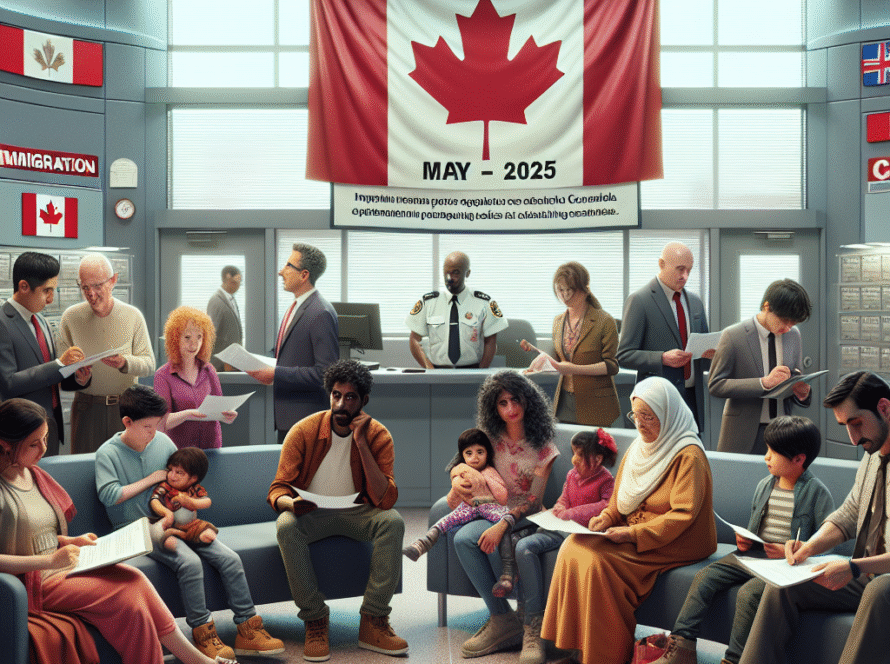Canada Faces Surge in Immigration Application Cancellations

Canada’s Immigration System Faces a Critical Juncture: What’s Next?
In recent years, Canada’s immigration system has been under increasing scrutiny due to mounting delays and processing backlogs. As 2025 unfolds, these issues have reached a critical point, sparking discussions around potential mass application cancellations and legislative overhauls.
Key Challenges:
Since mid-2024, processing times across nearly all immigration streams have surged, contradicting earlier data that suggested improvements. As of October 2025, citizenship applications now take 13 months instead of eight, and family sponsorships have nearly doubled in duration. Even expedited economic programs have seen substantial delays, with the Atlantic Immigration Program extending from six to 37 months.
Temporary residents, including workers and students, face significant waiting periods, with work permit renewals jumping from three to over seven months. The government attributes these delays to "admission targets" and "capacity limits," but critics argue that this only exacerbates the backlog, making mass cancellations more likely.
Bill C-12 and Its Implications:
Bill C-12, a proposed border security measure, is at the heart of the current debate. If enacted, it would grant Immigration, Refugees, and Citizenship Canada (IRCC) expanded powers, potentially allowing for large-scale application cancellations. This recalls the 2012 precedent when the government eliminated 280,000 Federal Skilled Worker applications to address backlogs.
The potential passage of Bill C-12 has sparked fears among applicants and legal experts, who warn of its capacity to undermine trust in Canada’s immigration system. Critics argue that such powers could be misused, affecting millions of applicants, including those already residing in Canada.
The Political and Human Dimensions:
Behind the technicalities of Bill C-12 lies a complex political scenario. The Canadian government plans to modestly reduce permanent resident targets in 2026-2028, citing housing and affordability pressures. However, without corresponding reductions in applications, this could worsen the backlog, creating a narrative challenge for the government.
For individuals waiting for immigration decisions, the implications are deeply personal. Prolonged separations, job offer expirations, and academic disruptions are common consequences of these delays. The emotional and financial toll on applicants is significant, leading many to question the fairness and reliability of Canada’s immigration promises.
Potential Solutions:
To address these systemic issues, experts suggest several measures:
- Temporary Intake Pause: Halt new applications in categories where backlogs exceed capacity to prevent further delays.
- Increased Investment: Allocate resources towards hiring more processing staff and leveraging technology for efficient application management.
- Legal Protections: Implement statutory guarantees to prevent retroactive application cancellations.
- Simplified Programs: Streamline pilot programs to enhance administrative efficiency and reduce complexity.
Looking Ahead to 2026:
As 2026 approaches, Canada’s immigration system stands at a crossroads. The government’s actions in the coming year will be pivotal in restoring public trust and ensuring the system’s integrity. Structural reforms, rather than legislative shortcuts, are essential to maintaining Canada’s economic momentum and upholding its reputation as a fair and welcoming destination for immigrants.
Ultimately, the promise of a fair and efficient immigration process must be renewed to prevent further erosion of trust and to support the country’s demographic and economic needs.



